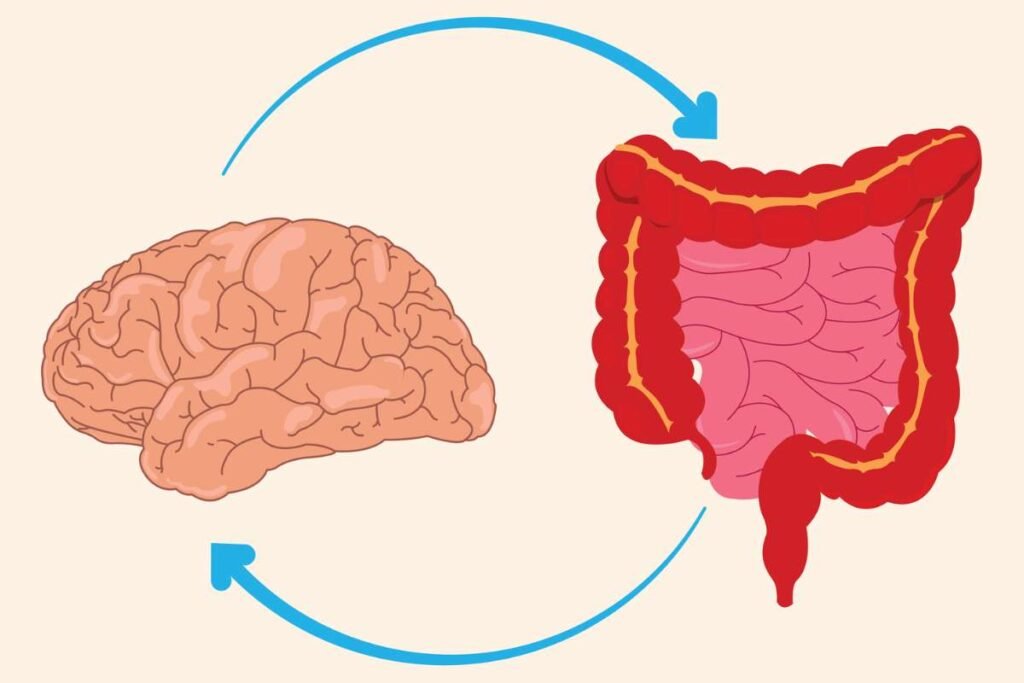In a landmark study published in Nature on July 24, 2025, researchers from Duke University have identified a previously unknown sensory system in the colon—dubbed the “neurobiotic sense”—that allows the gut & brain interactions to detect bacterial signals and instantly communicate them to the brain. Led by neurobiologist Diego Bohórquez, the team uncovered that a group of sensory cells in the colon known as neuropod cells express the receptor TLR5, which detects flagellin, a protein found in the tails of many gut bacteria.
These flagellin-sensing neuropod cells are responsible for producing PYY, a hormone known to suppress appetite. Upon detection of flagellin, these cells release PYY, which then activates Y2R receptors on vagal neurons, transmitting signals directly to the brain. In mice engineered without TLR5 in their neuropod cells, researchers observed increased food intake and weight gain—without triggering immune responses—indicating that this pathway acts as a sensory system, not an immune one.
Real-Time Communication Between Gut & Brain Interactions
To validate their findings, the researchers administered flagellin into the colons of mice and observed reduced food intake—unless TLR5 or the downstream Y2R receptor was disabled. Even germ-free mice, which lack typical gut–brain interactions microbiota, responded to flagellin, proving the response was based on bacterial proteins and not the overall microbial ecosystem.
Unlike slower-acting hormones such as insulin or leptin, this pathway relays microbial signals to the brain almost instantaneously, enabling rapid appetite regulation. Bohórquez and his team liken this mechanism to a newly discovered sixth sense—a sensory modality that monitors microbial patterns in the colon and modulates feeding behavior in real time.
This neural loop offers a dramatic shift in understanding gut & brain interactions. It no longer revolves solely around chemical messaging or immune signaling but instead shows that the colon has a direct, nerve-based “conversation” with the brain.
Implications for Obesity, Diet, and Mental Health
The implications of this “neurobiotic sense” are far-reaching. Since the pathway directly links gut bacteria to brain activity, it could revolutionize treatments for obesity, eating disorders, and even mental health conditions. Unlike previous theories focused on hormone imbalances or inflammation, this discovery introduces the concept of the gut & brain interactions ‘tasting’ microbial changes and adjusting hunger accordingly.
Experts believe this breakthrough may also help explain how changes in gut flora—via diet, antibiotics, or probiotics—can influence mood and behavior. As ScienceAlert notes, the evidence is compelling enough to consider this system a distinct and new sensory capability.
Duke researchers are now exploring whether this same pathway exists in humans and how different bacterial strains and diets might influence it. If confirmed, this could open the door to targeted microbiome-based therapies that can naturally curb appetite, manage weight, and enhance cognitive health.
In conclusion, the discovery of a real-time, bacteria-sensing “sixth sense” in the gut unveils a fascinating new chapter in the story of the gut & brain interactions axis. By allowing the colon to directly “sense” and respond to microbial cues, scientists may soon be able to decode how our internal ecosystem influences what we eat, how we feel, and even how we think.









